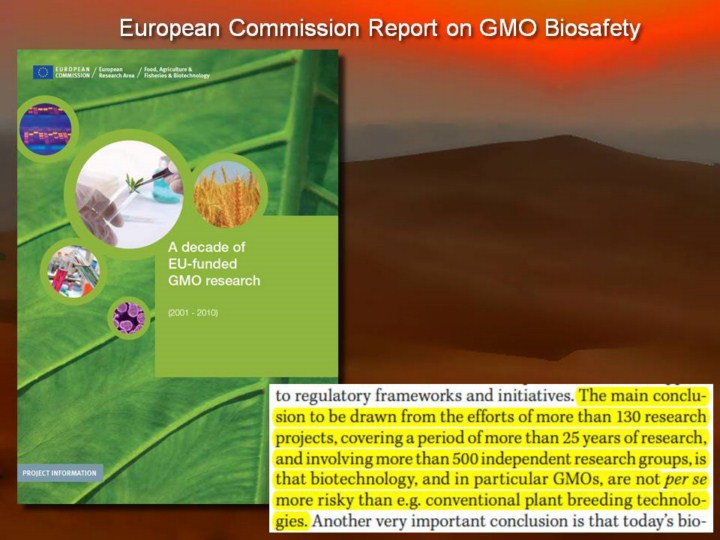 |
Fortunately,
molecular modification – GM technology – isn’t dangerous.
The
European Union has invested more than 300 million euros in research on the
biosafety of GMOs. As you see in this quotation from the recent overview of
the research, “The main conclusion to be drawn from the efforts of more than
130 research projects, covering a period of more than 25 years of research
and involving more than 500 independent research groups, is that
biotechnology, and in particular GMOs, are not
per se
more risky than e.g. conventional plant breeding technologies.” Every
credible scientific body that has examined the evidence has come to the same
conclusion.
GM crop
acreage has increased rapidly world-wide, driven primarily by cotton, corn,
canola and soybeans.
In 2010, GM crops were grown in 29 countries on 148 million hectares. More
importantly, 90% of the 15.4 million farmers growing biotech crops are
small-holder, resource poor farmers. The simple reasons that farmers migrate
to GM crops is that their yields increase 5-25% and their costs decrease, in
some cases by as much as 50%.
Urban
myths about the dire health and environmental effects multiply faster than
the crops. But not one has stood up to scientific scrutiny. All of the
effects so far, both expected and unexpected, have been benign.
Less pesticide used, less herbicide, fewer cases of pesticide poisoning, and
– surprisingly – much less contamination of corn by poisonous fungal toxins
made by the fungi that follow the insects as they bore into the corn.
|
